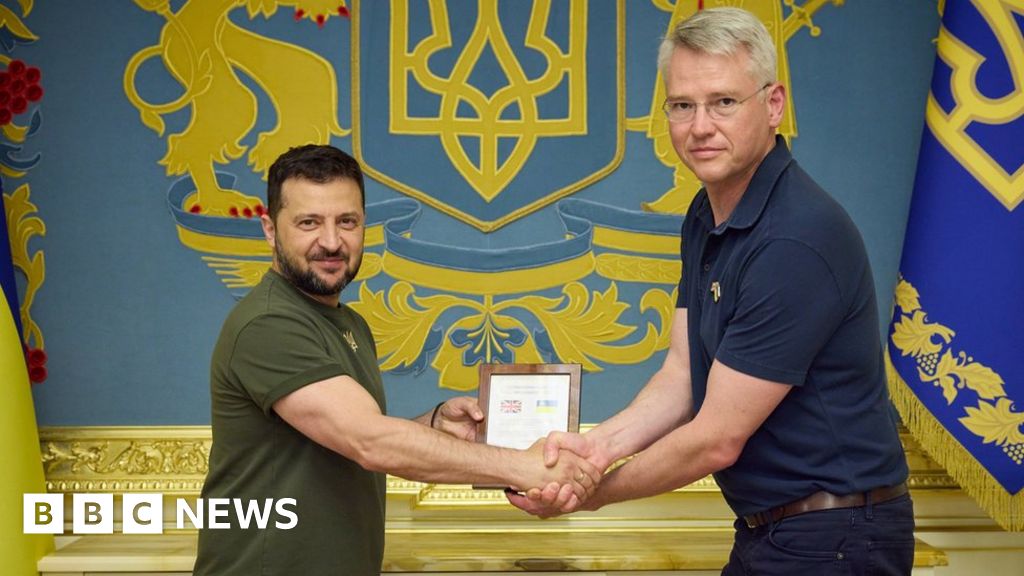Terry Gou, the billionaire founder of iPhone manufacturer Foxconn, has a dramatic manifesto for Taiwan’s presidency: rescue the country from the “brink of a precipice” and make it the richest in Asia.
“I have created a world-class company from scratch. I will apply that pioneer spirit to improve everybody’s lives!” Gou wrote on Facebook after announcing his campaign for the January 13 presidential election this week.
Gou’s resume is impressive, given Foxconn is the world’s largest contract electronics maker, with $208bn in revenue last year. But analysts said the chances of his candidacy succeeding were slim, and its most likely effect would be to splinter support among those who want Taiwan to take a more conciliatory line on China than its governing Democratic Progressive party.
The contest has geopolitical implications. A DPP victory in January could further raise tensions in the Taiwan Strait, since China views the party as separatist and has threatened to attack if Taipei resists unification indefinitely. Gou and other opposition politicians accuse the DPP, which refuses to call Taiwan a part of China and pledges to defend its sovereignty against Beijing, of bringing the issue to the brink of conflict.
But polls have Lai Ching-te, the DPP candidate and incumbent vice-president, leading the race for the single-round, first-past-the-post election with 33-40 per cent of the vote. No opposition candidate has polled above 30 per cent.
“Gou is going to have an impact a lot more like Michael Bloomberg than Donald Trump,” said Nathan Batto, an expert on Taiwan elections at Academia Sinica in Taipei who sees parallels with the shortlived 2020 US presidential bid of the billionaire former New York mayor.
Gou, who built his business on manufacturing almost exclusively in China, shares with his rival opposition candidates the position that Taiwan is part of a greater Chinese nation.
The Foxconn founder has said the opposition can only win if it unites but has not said how he might work with rivals Ko Wen-je and Hou Yu-ih.
Ko, a 63-year-old former surgeon, rode a wave of youth protests against the then-ruling Kuomintang to win election as Taipei mayor in 2014 in co-operation with the DPP.
But Ko became a fierce critic of DPP president Tsai Ing-wen after she came to power in 2016. He founded his own Taiwan People’s party, which targets swing voters but is often closer to the KMT.

Ko’s appeal to swing voters and younger people in particular has damaged Hou, the KMT’s candidate and current mayor of New Taipei, the municipality surrounding the capital.
The KMT chose Hou, a down-to-earth former police officer who prides himself on “getting things done”, because of the strong ratings he enjoyed before becoming the party’s candidate.
But he has struggled to rally the KMT’s traditional core of Chinese nationalists, many from families that fled to Taiwan in 1949 following the party’s defeat in the Chinese civil war. Hou’s family has lived in Taiwan for generations, and he only reluctantly endorsed the party’s stress on Chinese identity.
“Mainstream public opinion is to get rid of the DPP, but the opposition candidates’ poll ratings are weak and morale is low,” Gou said on Monday. “I hope that the stalemated opposition forces can consolidate.”
That looks unlikely. Formosa, one of Taiwan’s largest pollsters, puts Lai’s latest support at 36 per cent, while Ko and Hou have 19 and 18 per cent, respectively, and Gou trails with 9.7 per cent.
More than 30 per cent of respondents who did not support Lai said they would vote for the opposition candidate with the highest poll ratings, demonstrating a willingness to switch allegiance that analysts expect will fuel competition among the three.
“There is a big cohort of anti-DPP protest voters that are hectically thinking about strategic voting, and guessing how they or other people might do that. So there might be some big swings ahead,” Batto said. “Multi-candidate races like this are inherently unstable, and it is bound to continue like this until election day.”
Lev Nachman, a political scientist at National Chengchi University in Taipei, said having three candidates from the other side of the political spectrum should “on paper” make things easier for the DPP.
But he added one possible scenario was for Ko to drop out under a deal with the KMT to cede some districts to his party in legislative elections to be held alongside the presidential vote. Alternatively, Ko could co-operate with Gou.
“While these are unlikely, Lai should not be breathing a sigh of relief that [the DPP] have the race in the bag,” Nachman said.
All three opposition candidates blame the DPP for soaring property prices and stubbornly low salaries, issues that resonate with the public as the economy slows sharply.
Taiwan’s growth held up over the past three years due to a global semiconductor boom and success in containing the Covid-19 pandemic. But demand for chip exports is falling, and gross domestic product growth is forecast to drop to under 2 per cent this year.
Some DPP politicians sense public fatigue with the party.
“People don’t think the DPP has the same values as before, and they believe we have become arrogant,” said a senior party official. “Even young voters don’t think it’s necessary that we stay in power. Many are unhappy with economic issues like entry-level salaries, but some also no longer know what we stand for. Other than the China factor, what can the DPP offer?”
Analysts believe the growing disaffection of DPP supporters and the increasing significance of the swing voters that powered Ko’s rise reflect broader changes in Taiwan’s political landscape.
Young adults tended to be “less connected to the DPP and to party identity in general”, said Nachman.
The DPP’s troubles will only help the opposition if Gou, Ko and Hou can make a deal. Initial signs are not promising. The KMT has said a recent attempt to negotiate with the Foxconn founder broke down because he insisted the party make him its candidate. Gou’s campaign denies the claim.
Analysts said Gou’s ego and lack of political experience would hamper his bid, pointing to the example of how he set aside much of his launch press conference just to introduce a campaign spokesperson.
“He is spending a lot of money, but he is not running a professional campaign,” Batto said. “It’s a lot easier to turn power into money than it is to turn money into power.”
Credit: Source link











